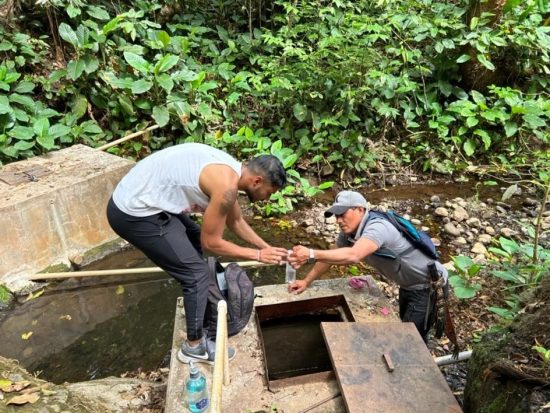Where We Operate

Coastal Georgia
Based in Savannah, the IWH is integrated into several community support organizations such as the Racial Equity and Leadership (REAL) Taskforce, Vernon River Watershed Management Technical Advisory Committee, and GA Coastal Indicators Coalition. We partner with many non-profit and academic units such as Riverkeepers and the Coastal College of Georgia to broaden our impact in communication, research, and educational projects.
Coastal Georgia is home to one of the fastest-growing populations in the state, the second-largest port on the Eastern Seaboard, three military bases, and one of the most pristine estuaries in the country with a potential for improved aquaculture and eco-tourism.
A diverse population inhabits coastal Georgia, with majority-minority cities and high-income gated communities adjacent to immense poverty and environmental justice issues. The IWH serves all these communities and more.
Rural Communities
Although Savannah and Brunswick are nearby metropolitan areas, much of the area served by the IWH is rural or agricultural. Issues related to private well water, septic systems, irrigation capacity, and quality, and public health are interconnected. The IWH partners with local municipal governments, Farm Bureaus, and water planning commissions to co-create research projects to help these communities better adapt to local challenges.
Eastern United States
Although much of the work done by the IWH is located in Georgia, collaborations don’t stop at the state line. We partner with data collection networks ranging from Florida to Maryland looking at beach bacteria levels, predictive modeling, and citizen science projects. Across the coast, we are members of the Southeast Coastal Observing Regional Association, a water quality data clearing house and research partner. The Swamp2Gulf program led by GS College of Education faculty trains teachers from GA to FL in professional development related to water quality and education.
Around the Globe

Working with our affiliated faculty, local NGOs, and a public health graduate student at Harvard, the IWH designed a research project to investigate poor water quality in Santa Lucia and Colomoncagua, two counties in southern Honduras. By identifying issues, the affected communities can now target their resources to fix the problem.
The IWH is currently developing a new research collaborative in Ireland with the Southeast Technological University. A multidisciplinary cohort of researchers and engineers are working on developing water quality projects to tackle the impact of extreme weather on environmental health.
Last updated: 2/8/2024
